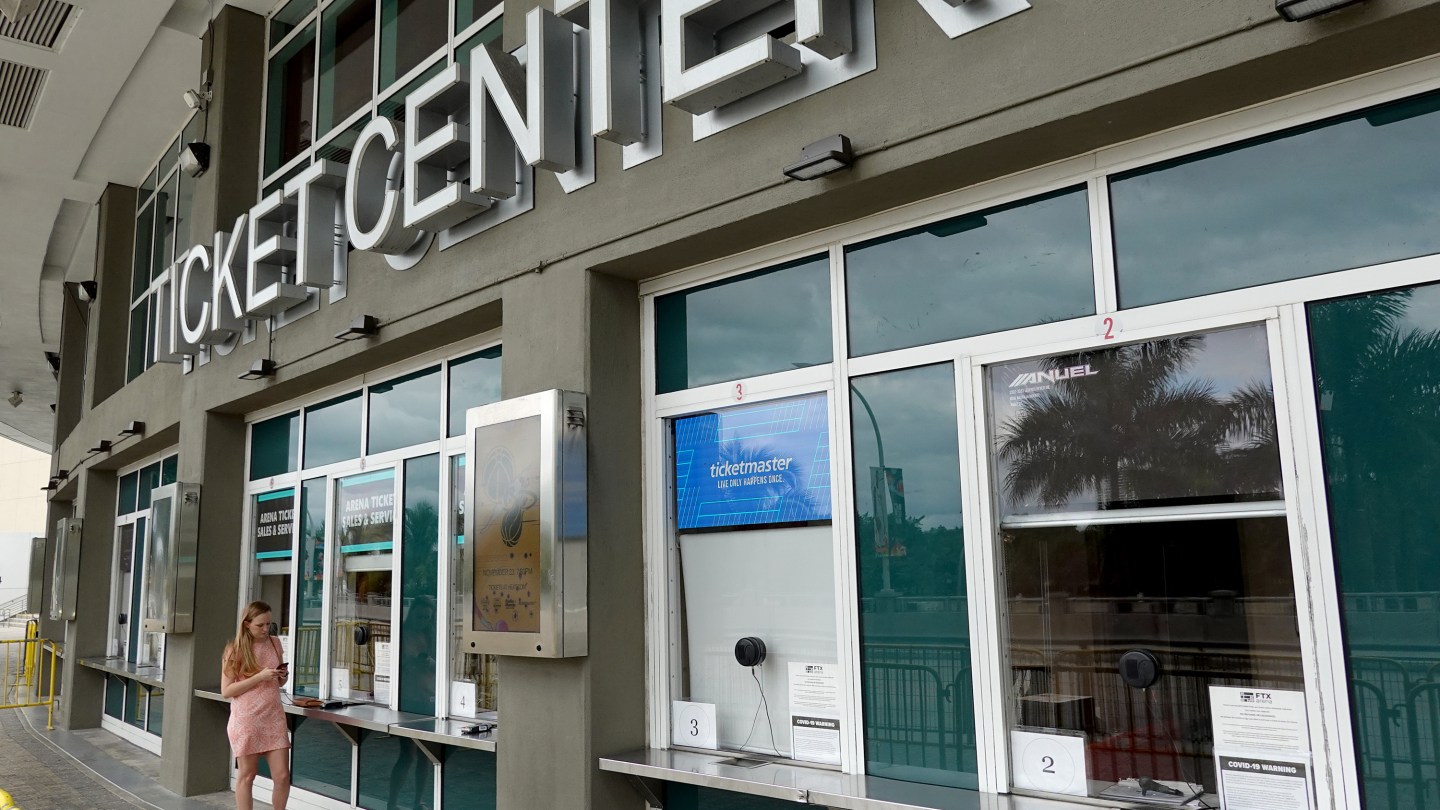A new study from the National Independent Talent Organization focused on ticket prices in New York gives credence to what many music fans have been moaning about for years: Ticket fees have gotten too damn high.
Per NITO, in New York, fees now make up an average of nearly 29 percent of the cost of tickets on the primary market, while fees on secondary sites like StubHub, Vivid Seats and SeatGeek average out at 39 percent. Fees went up 36 percent since an oft-cited study from the New York Attorney General’s office study on fees published back in 2016, NITO said.
“Ticket fees are going up, and artists have no control over those fees,” booking agent and NITO executive director Nathaniel Marro tells The Hollywood Reporter. “The biggest players in the business are charging the highest in fees. Prices are being driven up everywhere.”
To conduct its report, NITO analyzed tickets sold on the primary market from 68 venues across the state, 28 from within New York City and 40 from outside the five boroughs. NITO selected about three to five shows per venue and excluded platinum-priced tickets from its analysis. For the secondary market, NITO looked at tickets sold on StubHub, Vivid Seats and SeatGeek, with the organization saying it reviewed 150 secondary tickets total.
Per NITO, fees on Ticketmaster and AXS, the ticketing platform owned by AEG, were nearly double all the other primary ticketing platforms, averaging at nearly 35 percent of the ticket price. At the most extreme level, NITO identified several instances where fees on an $18 ticket were more than 100 percent of the face value. NITO described the fee issue as “a systemic distortion of value, artificially inflating the cost of live entertainment and undermining the trust between artists and their audiences.”
Still, as Marro says, his biggest takeaway from NITO’s findings were how much higher secondary fees were than on the primary market.
“We’d expected it, but it was surprising to see how high the fees were on the secondary market,” he says. “They’re already charging so much on these tickets, to charge so much extra on fees was surprising. And resale still doesn’t give any support to the artists who the fans are actually buying tickets to see.”
NITO’s study comes at a time of heightened discussions and discourse around the live music business. Live Nation-owned Ticketmaster, for example, currently faces lawsuits from both the DOJ and the FTC. Live Nation issued a response to the more-recent FTC suit this week, announcing it was banning use of multiple accounts on the platform to try and rein in ticket brokers.
The debate around fees is a sensitive topic in the music industry. It’s one of many parts of the business that’s grown increasingly frustrating for fans who question what they feel are arbitrary additional costs for an experience that’s becoming unobtainable for all but the wealthiest customers. But concert venues reject classifying these as “junk fees,” arguing that fees are essential for venues to make any money as expenses for concerts continue to skyrocket, while artists are taking more. NITO acknowledged growing costs in the study, but Marro questioned how much that’s the sole factor in the price hikes over the past decade.
“I think there are serious issues with bottom lines across the board, expenses have gone up across the board, absolutely,” Marro says. “I’m not here to argue that. Expenses have gone up for both artists and venues. But there is also just simply a profit margin and a profit protection as well. If you can charge this much in ticket fees, maybe a show that doesn’t sell as well is a bit more protected. Venues are sensitive talking about this, they don’t want to have this conversation. I understand why. Artists may be, too. But you look at the history of concert fees, it started at $1, now we’re far past that.”
Marro says artists NITO represents, particularly at the more developing level, struggle with heightened fees both because it limits their control over their ticket prices and because the fee cost may be the difference between fans being able to afford a ticket.
“There’s even more price sensitivity for that lower artist level, that extra $25 takes away that spontaneity element I think is extremely important for these shows,” Marro says. “When you expect a $20 ticket, and it’s really $35, that might be the difference of whether you decide to go. You can’t make basic entertainment a luxury good because then everyone’s screwed. There’s only so many people who will go to shows at a certain price point, we need to be conscious of that.”
As for actual solutions, NITO had several recommendations. Most notably, the organization is advocating for policy to cap fees at 15 percent of a ticket’s face value, as well as rent stabilization for concert venues to help bring down the cost of venues’ expenses. NITO also called for artists to set their own resale guidelines over their tickets.
“How do we bring costs down across the board,” Marro asks. “Venues are getting priced out of their locations all the time. We need commercial rent stabilization. We need to put caps on the secondary. You need to make sure people are being held accountable and that people aren’t being gouged all the time. Costs that go into all of this are absolutely astronomical. And the costs need to come down.”

